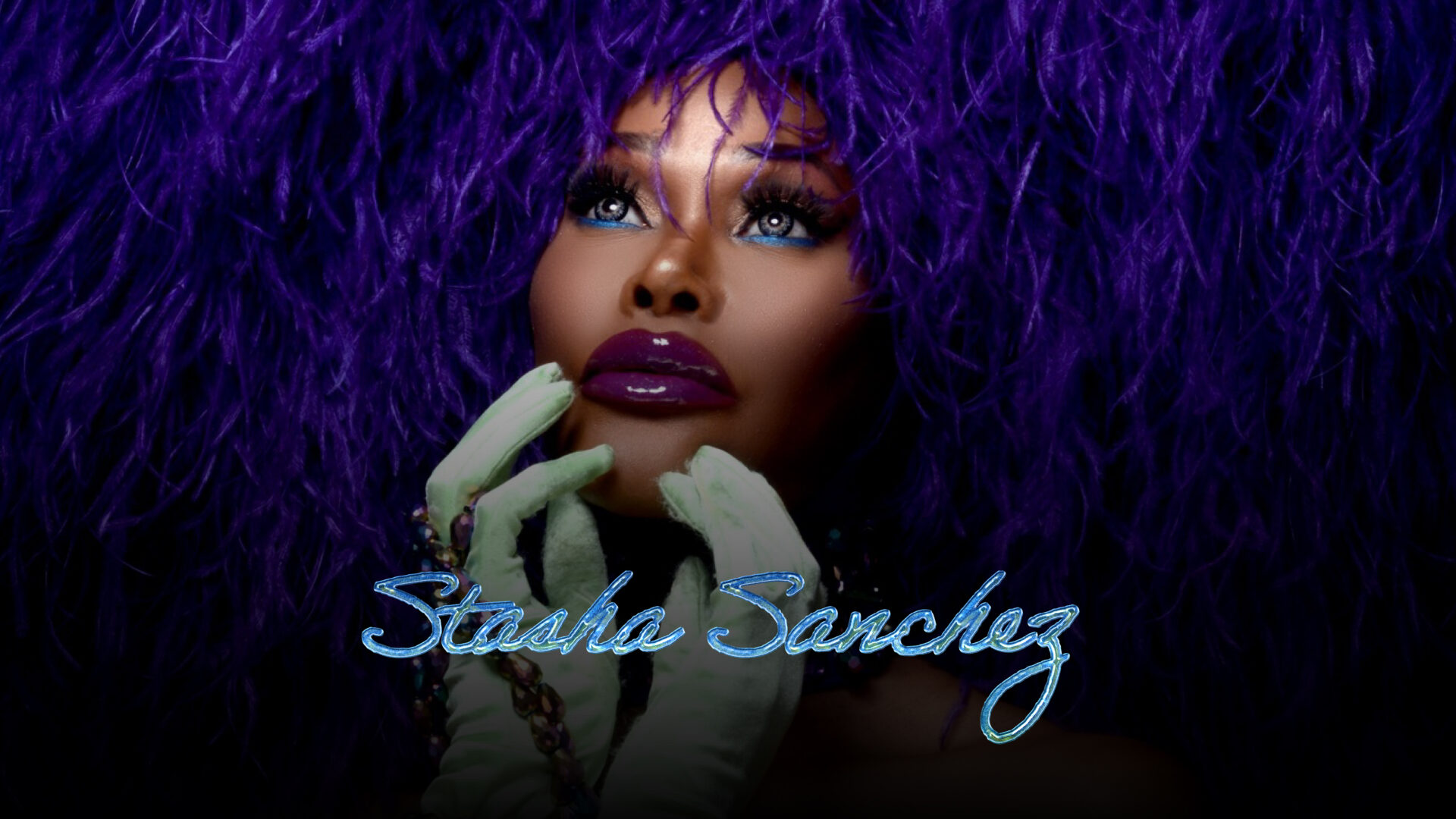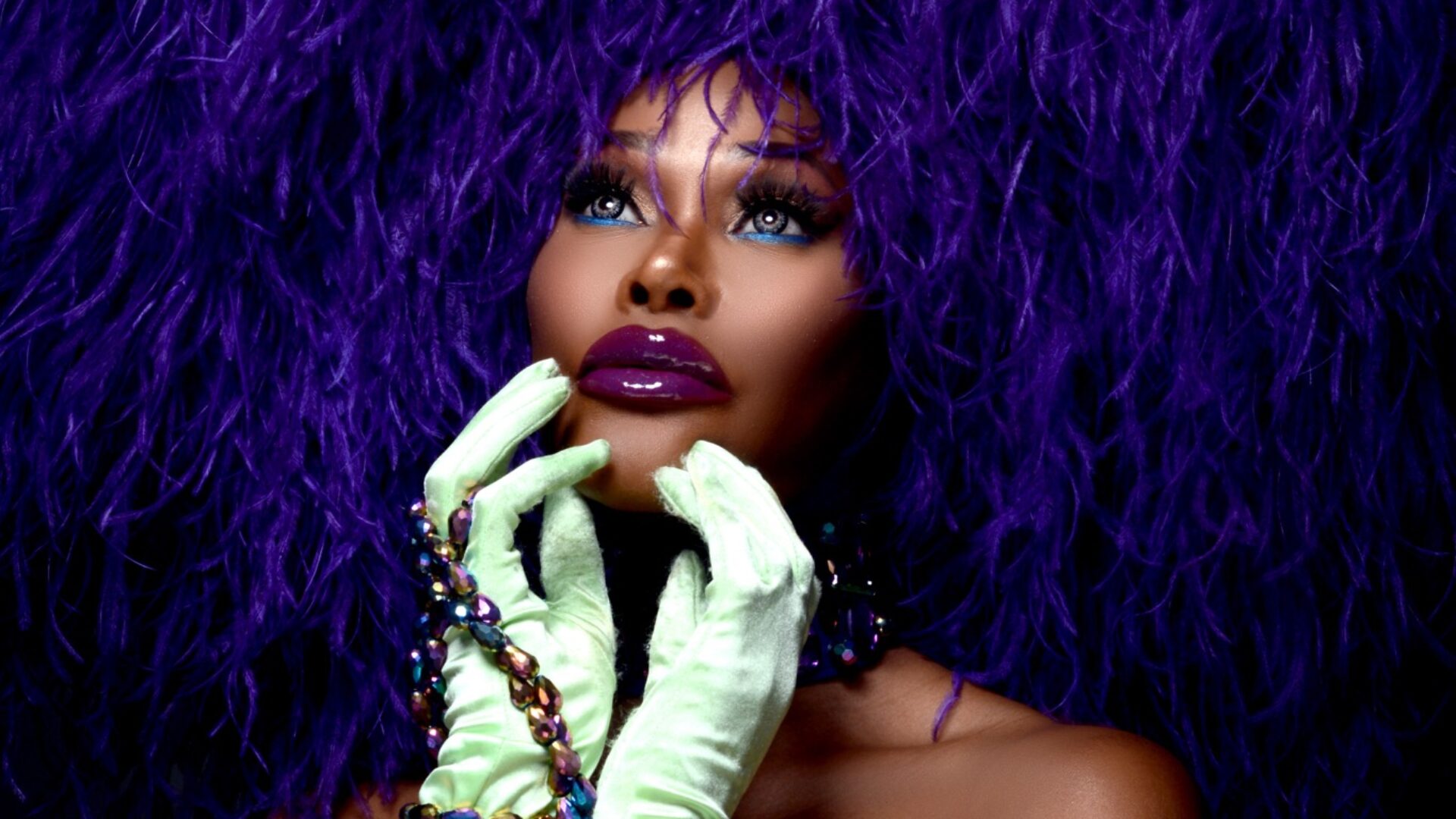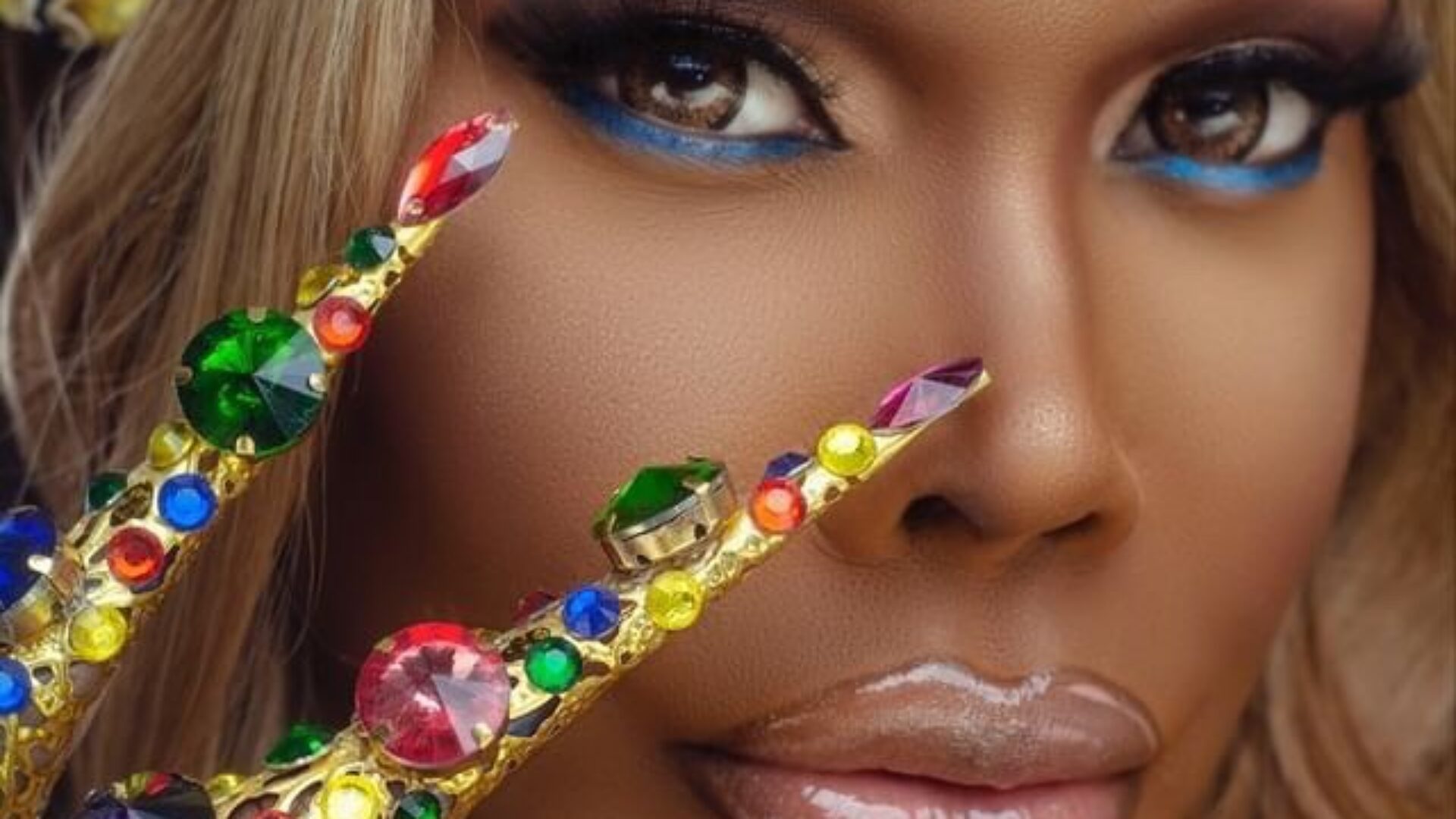
Ballroom mother Stasha Garçon Sanchez stands as a pillar of support and guidance within the vibrant world of ballroom culture. The Jacksonville, Florida native saw the ballroom as where she needed to be. Starting in pageantry (which started ballroom), she found the freedom to be herself and soon found a new safe space: the ballroom scene. As a member of the house of Miyake-Mugler, she discovered a safe space to live out her fantasies as she walked through the face category. “This was my outlet of being a model and being on the cover of magazines,” she tells GU. “That fantasy turned into a reality I’m truly grateful for because ballroom is love and acceptance.”
Sanchez’s years at Mugler were transformative, laying the foundation for her role as the mother of the House of Garçon. “Ballroom has helped me grow as a mother and person, and I’m grateful for what ballroom has implemented in my life,” she says. Unlike traditional motherhood, the role of a ballroom mother is not bound by biological or adoptive relationships. It extends beyond familial boundaries, offering guidance, love and protection to her house or chosen family within the ballroom scene.
Sanchez’s support and encouragement create an environment where individuals can flourish and feel nurtured. “Coming from the world of pageantry and having a big family developed me as I grew up,” she says. “I was able to hear these kids and understand who they were and where they came from. We all need that love, connection, and inspiration to know that we can be whoever we want to be without doubt.” Her mentorship is not limited to the ballroom; it extends to all aspects of her children’s lives, fostering their growth and development.

Photo Courtesy of Stasha Sanchez
As she continued to grow with her family, she found herself learning major lessons through her children. “They taught me how to grow,” she says. “I have kids in different states, and I had to communicate and connect with them so we feel comfortable with each other. We’ve grown together, and I’ve grown with many of my kids.”
The role of a ballroom mother encompasses far more than just prizes and categories; it entails emotional support, advocacy and a deep sense of belonging. With finely tuned maternal instincts, Sanchez provides a safe haven for her children. “A lot of people think it’s easy; a lot of individuals feel it’s easy to just be a mother or just want to be a mother for the clout,” she says. “When you’re a mother, you take on the burden of your children because there are times when you have to sit and listen and understand who your children are and where they come from.”
While the outside world may perceive ballroom culture as merely extravagant performances and fierce competitions, the role of a ballroom mother sheds light on the profound bonds and dynamics in this vibrant community. Stasha Sanchez’s dedication to her house transcends the stage as she becomes a mentor, confidante and protector to those under her care. In her nurturing embrace, individuals find the love and acceptance they may not have experienced elsewhere, illustrating that motherhood, in all its forms, knows no boundaries.

Photo Courtesy of Stasha Sanchez
Sanchez showed that during her time on season two of the Max series Legendary, she anchored her children throughout the experience. “A lot of the kids hadn’t been in that space before, so there were some days when they were insecure and going through [loss], and I had to take on all of those things but also take care of myself,” she tells GU. “I always go to God for any and everything, and I always take that with me in order to become a stronger individual so I can be that mother figure for my kids.”
Starting as a member of Miyake-Mugler and becoming a mother to the House of Garçon, she’s found that motherhood is one of her greatest achievements. She has become a personal safe haven for children across the country. “When we’re coming from the LGBTQIA+ community, there’s so many negative stigmas that aren’t implemented and placed into us,” she says. “When you have someone that can take you out of that mental space of negativity and put you in a space of positivity, it makes my heart smile because it shows I’ve done something right.”
As Ballroom culture continues to gain mainstream popularity, it’s important to continue sharing the foundational aspects of what it means to be a Mother. “For the new generations of mothers, it’s about reinventing yourself, understanding who you are and your kids, being open to criticism, and never taking things to heart,” she says. “The most powerful thing in [motherhood] is opening the door for others and showing them the way of what a mother should be.”
About the Author: Kenyatta Victoria is the lead writer for Essence GU, working on all things pop culture, politics, entertainment and business. Throughout her time at GU, she’s garnered devoted readers and specializes in the Zillennial point of view.